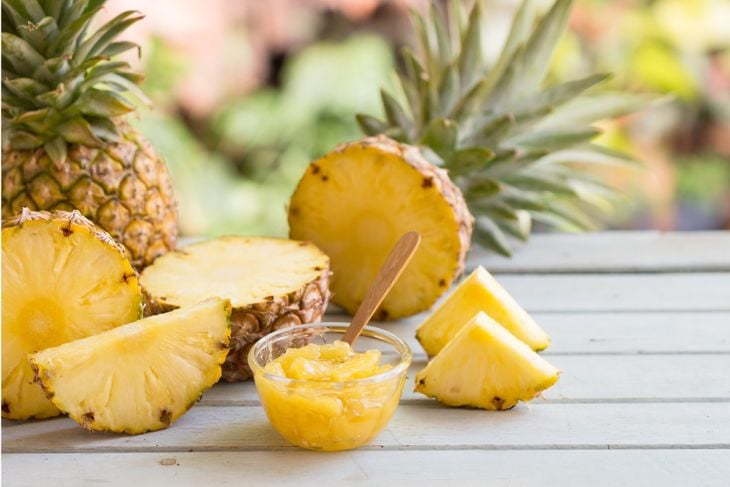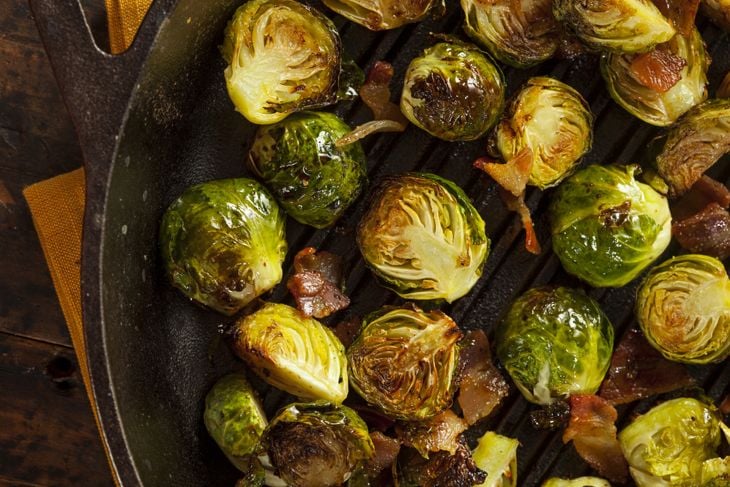Life Brand Effervescent Vitamin C Powder
15 Foods High in Vitamin C
Fact Checked Updated: Mar 2, 2021
Vitamin C keeps the immune system healthy, helping treat infections, viruses, and other conditions. Although research has not proven that vitamin C prevents the common cold, it can help people recover more quickly, and it may reduce the severity of the virus. Though most people think of oranges and orange juice, vitamin C is in many common foods.
Chili Peppers
Chili peppers can be used to spice up just about any dish, and they up your vitamin C intake, too. In addition to burning your tongue, a half cup of diced chili peppers contains more than 100 percent of your recommended daily vitamin C. They also have plenty of other nutrients, like vitamins A and B6 and potassium. To add chili peppers to your diet, try dicing and putting them into soups, curries or meat dishes for a little extra spice. In addition to vitamin C's effects on viruses, the capsaicin in chili peppers can help to clear nasal passages and relieve headaches during cold season, too.

Strawberries
Strawberries are not just delicious; they are one of the best sources of vitamin C, containing even more than oranges. They're also a great source of folate, antioxidants, manganese, and potassium. Strawberries are easy to add to your diet; they can top yogurt or cereal, sweeten smoothies, make a great, simple snack.

Mangos
If you want to consume more vitamin C, turn to mangos. One cup of diced mango pieces can meet your daily recommended intake of vitamin C. Due to their size, eating an entire mango can provide nearly twice the recommended amount. That boost may help to keep you healthy and decrease viral recovery time. Mangos might not be as popular as apples and oranges in the produce section, but given how much protein, potassium, and vitamins are packed into these fruits, maybe they should be!

Sweet Peppers
If chili peppers are too much, sweet peppers can also provide vitamin C. A half cup of chopped green peppers has up to three times the daily recommended intake of vitamin C, and the more colorful sweet peppers contain more than 100%. Raw vegetables contain the most nutrients, so try snacking on raw slices and low-fat dip or dicing them up for salads. Even cooked peppers retain a lot of their nutritional benefits.

Kohlrabi
This turnip-looking green root vegetable is a member of the cabbage family and a cup gives you more than the recommended daily amount of Vitamin C. Kohlrabi contains many key nutrients, including vitamin C, fiber and antioxidants, potassium, magnesium, and vitamin B6. The sweet, crunchy, lightly flavored veggie is delicious raw, but can also be steamed as a side dish.

Kale
Kale is a superfood because of high levels of vitamin K and vitamin A, but it's also a great source of vitamin C, containing about 130% of the daily recommended amount in every cup. In addition, kale is full of iron, omega-3 fatty acids, and other important nutrients. It's easy to add more kale to your diet by swapping it for lettuce in salads or adding it to smoothies.

Pineapple
A cup of pineapple has more than 75 mg of vitamin C. Pineapples have a lot of bromelain, an enzyme that can help with food breakdown during digestion, improving the body;'s ability to absorb nutrients. Pineapple is available fresh, frozen, dried, and canned. Many studies suggest frozen fruit has as much, if not more, nutritional value as fresh, though it may affect the flavor.

Kiwi
Kiwi is a great snack for anyone on the go, and it's packed with vitamins C, K, and E, fiber, and potassium. Although you can eat the peel safely, the best way to eat kiwi is to cut it in half and use a spoon to scoop out the center. Kiwi also has lots of antioxidants and anti-inflammatory properties. These fruits are small and easy to prepare, so pack one to eat at your desk at work, or add them to fruit salad.

Grapefruit
The grapefruit diet might not be as trendy as it once was, but grapefruit is still an excellent source of nutrients. A great source of vitamin C, of course, the citrus fruit also contains vitamin A, potassium, and fiber. Grapefruits also offer lycopene, which has been shown to fight cancer-causing cells and reduce the risk of developing tumors. Research shows that grapefruit improves heart health, making it a good option for those with cardiovascular issues. You can drink grapefruit juice and get many of the same health benefits, but eating half a fruit for breakfast or as a mid-afternoon snack is ideal.

Cauliflower
A cup of cauliflower can meet about 85 percent of your recommended daily intake of vitamin C. This vegetable from the brassica family is a healthy way to get vitamin B6, fiber, and potassium into your diet. A cup of cauliflower only has about 25 calories. For maximum nutrients, try raw cauliflower pieces with yogurt dip. You can also steam or boil cauliflower for a healthy side dish.

Broccoli
Broccoli is packed with nearly 135 percent of the recommended daily intake of this important nutrient in a single-cup serving. It also has lots of other healthy components, like vitamin B6, vitamin A, and plenty of fiber. Both the stems and the flowering heads are edible, and the cruciferous veggie can be served cooked or raw.

Brussels Sprouts
Brussels sprouts might not be at the top of everyone's list, but they're full of vitamin C and have fewer than 40 calories per cup. They're also bursting with potassium, vitamin B6, and vitamin A, and a healthy dose of fiber. Steam or roast Brussels sprouts for a healthy, vitamin C-filled side dish with your next meal.

Guava
Guava grows primarily in Central and South America and is not always well-known to North Americans. However, just one cup of the pretty pink fruit contains a whopping 625 percent of your recommended daily vitamin C. It includes 36 percent of recommended fiber, and 20 percent of vitamin A, too. Guava has been known to help with everything from common colds to high blood pressure.

Papaya
The papaya is another tropical fruit full of vitamins and minerals. It makes a great ingredient for smoothies, salads, and other delicious dishes, and delivers about 150 percent of daily vitamin C in every cup. That amount also has less than half a gram of total fat and just 62 calories. Papaya has a sweet, tropical taste with a very smooth consistency.

Cantaloupe
Cantaloupe is a great source of vitamin C. The melon exceeds the recommended daily value for vitamin A and contains plenty of potassium, too. Because vitamin C is very beneficial to immune system function and heart health, cantaloupe is a good choice for those at risk for cardiovascular concerns. Eating a dish of cantaloupe every day can also help fend off viruses and other illnesses by strengthening the immune system.

Life Brand Effervescent Vitamin C Powder
Source: https://facty.com/food/nutrition/15-foods-high-in-vitamin-c/

0 komentar:
Posting Komentar